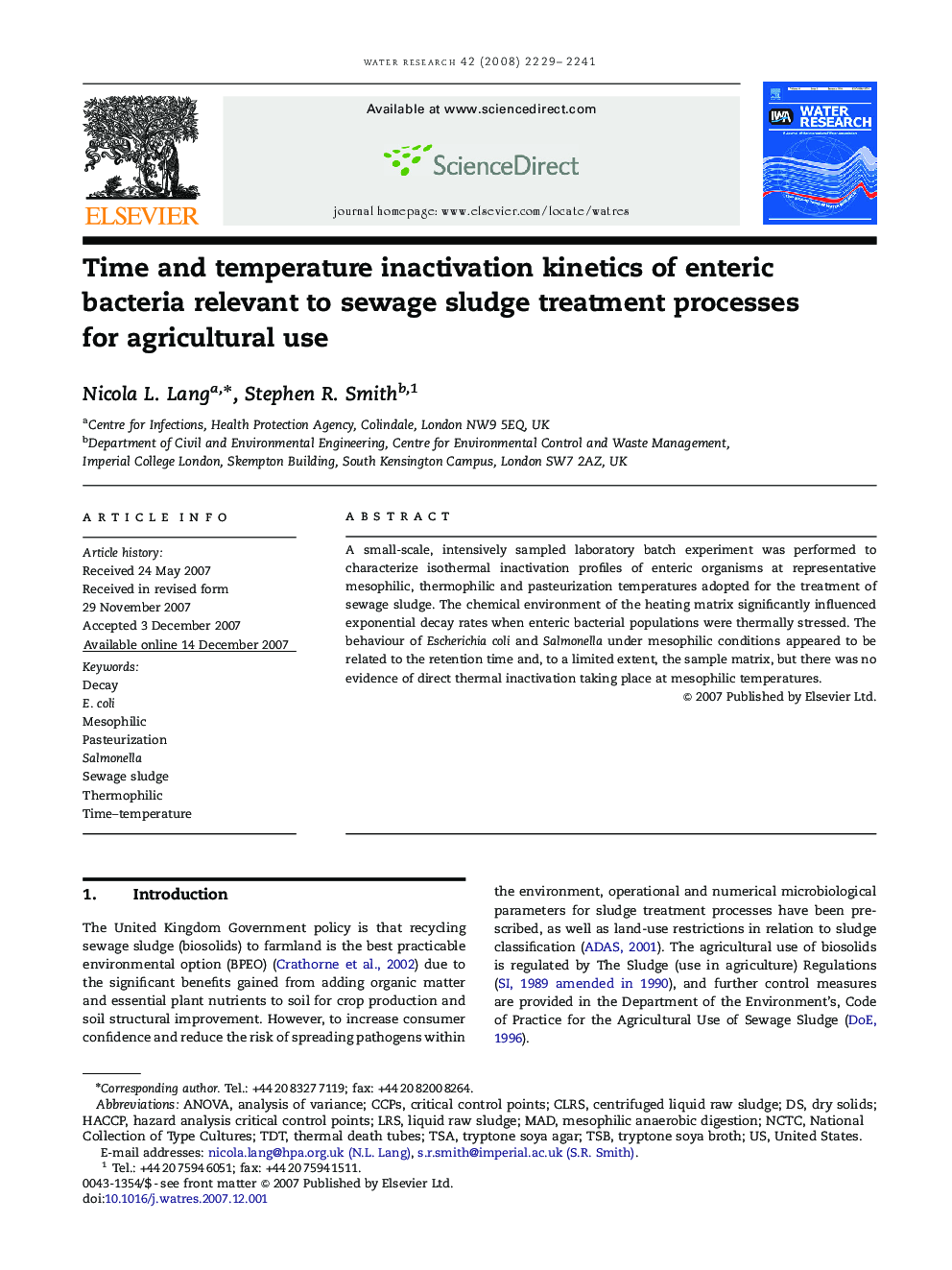| Article ID | Journal | Published Year | Pages | File Type |
|---|---|---|---|---|
| 4484951 | Water Research | 2008 | 13 Pages |
Abstract
A small-scale, intensively sampled laboratory batch experiment was performed to characterize isothermal inactivation profiles of enteric organisms at representative mesophilic, thermophilic and pasteurization temperatures adopted for the treatment of sewage sludge. The chemical environment of the heating matrix significantly influenced exponential decay rates when enteric bacterial populations were thermally stressed. The behaviour of Escherichia coli and Salmonella under mesophilic conditions appeared to be related to the retention time and, to a limited extent, the sample matrix, but there was no evidence of direct thermal inactivation taking place at mesophilic temperatures.
Related Topics
Physical Sciences and Engineering
Earth and Planetary Sciences
Earth-Surface Processes
Authors
Nicola L. Lang, Stephen R. Smith,
